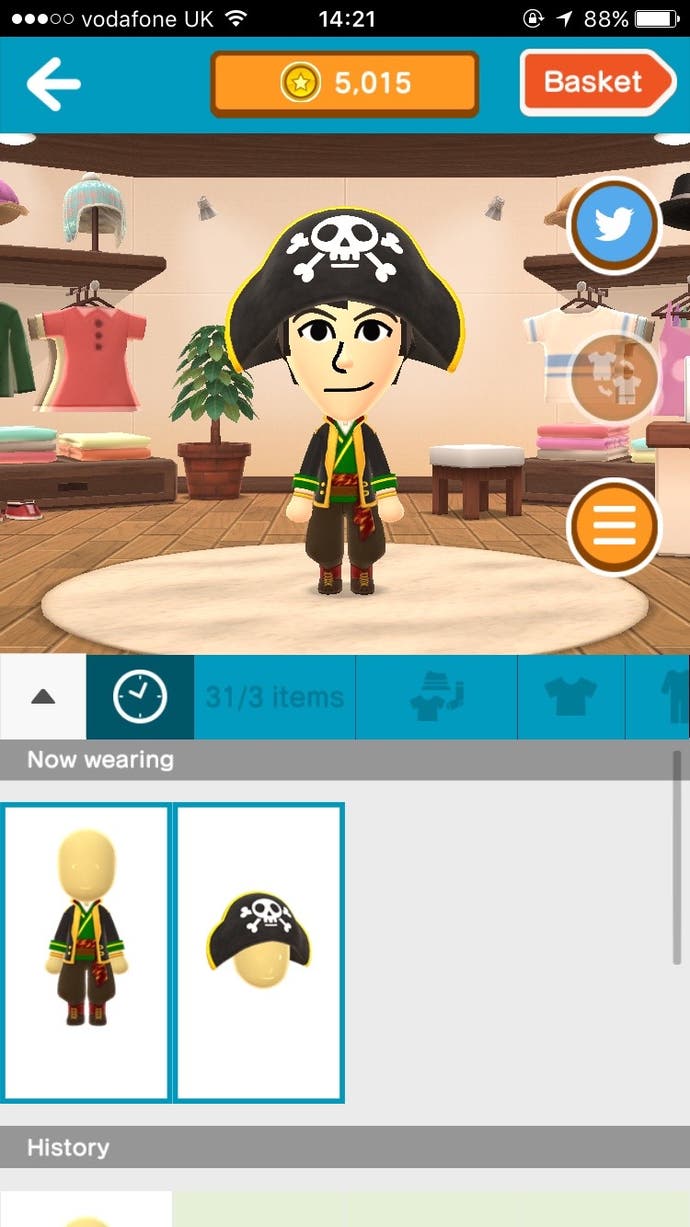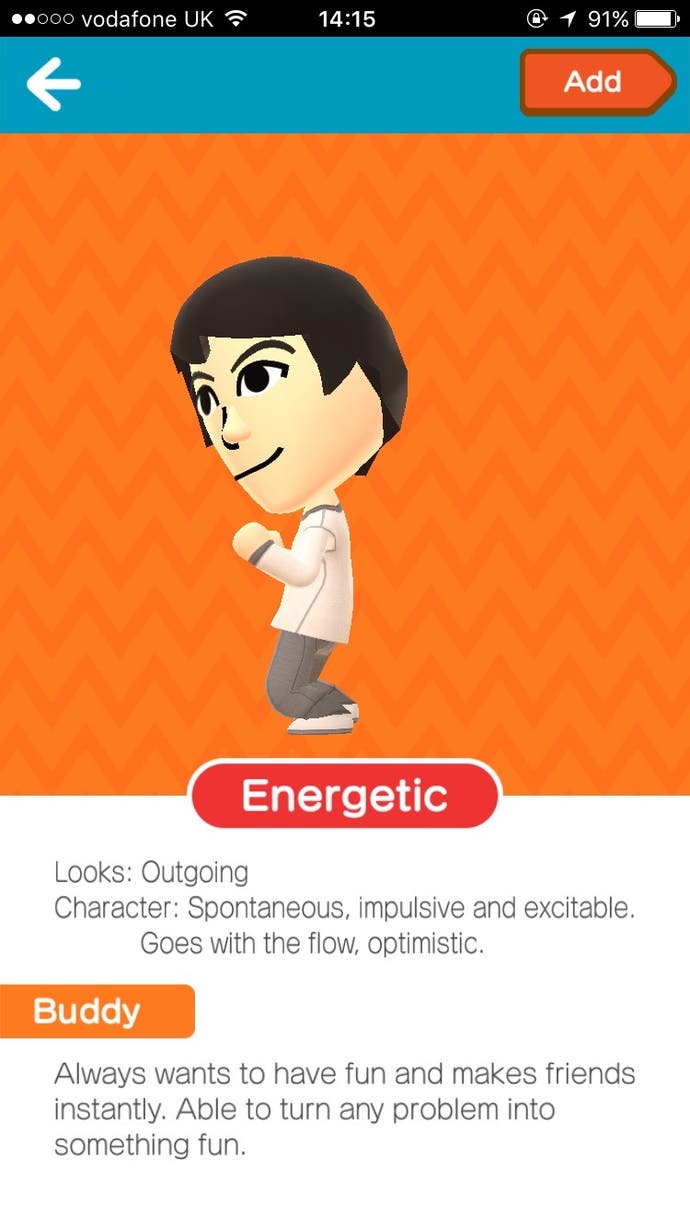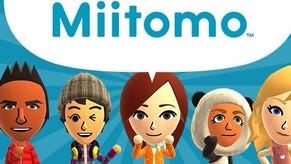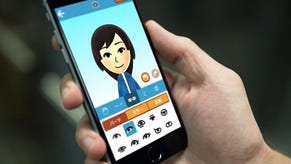Miitomo: Nintendo's attempt to clean up social media
Like?
Harassment, hoaxes, mob justice, public shaming, doxing, citizen journalism, disinformation, snuff, celebrity breakdowns, racist chat-bots, joke plagiarism and an endless stream of delectable cat gifs. The effects of the rise of social media on humanity are myriad, varied and - let's give them the benefit of the doubt - unforeseen by the creators of these ubiquitous platforms. What a time for Nintendo to launch its own variant, when the company's American office is embroiled in a publicity storm that is playing out, principally, on Twitter.
Miitomo is a different sort of social media platform to the current titans of the landscape, although, like them, it too is defined by its restrictions as much as its features. Twitter (for now at least) limits us to 140 character utterances. Snapchat's messages self-destruct on delivery. Instagram is life viewed through a clutch of kindly filters. Miitomo, meanwhile, is defined by exactly the kind of restrictions you might expect from such a conservative and image-conscious company. You cannot upload photographs of your pet or baby for example. You cannot link to divisive thinkpieces, or call out your boss for sexist behaviour. It's unlikely that anybody is going to get fired anytime soon thanks to an ill-judged Miitomo status update.
There are structural reasons for this. For one, there's a certain level of remove between you and your Mii, your cartoonish avatar who lives in a pokey, largely unfurnished apartment. On Twitter, Facebook, Instagram and all the rest, there's inevitably a gap between you as a human being and your online persona, even if it's a gap created by omission rather than fabrication. It's unlikely, for example, that you share every thought and detail of your life with your friends and family. It's unlikely that you always look quite so good as your profile pic. Miitomo makes the distinction clearer and explicit: the Mii that you create and "keep", as the game puts it, rather sinisterly, inside your "device", is not you, per se. It is your representative, as much as your representation.

When you first sign up you're able to scan in your face for the app to mimic (or, alternatively, you may use the familiar buttons and sliders, popularised in the Wii's Mii channel, to do the job by hand). You specify a nickname, and the way in which the game's text-to-speech computer pronounces your name, specifying the pitch, speed, depth, energy and accent or your voice. Thereafter, however, the avatar speaks to you as if it's another entity. "If we're not careful our friends will start to think I'm some kind of imposter," they say to you, weirdly.
That process of closing the gap between you and your persona takes place via the app's primary mode of interaction: answering questions about yourself. Your avatar might ask you to specify your favourite food, or to describe your most recent purchase, or what news item has caught your attention recently. Your answers are saved and, when a friend visits your apartment, recounted by the Mii in your voice. In this way Nintendo, by specifying careful limitations, has created a restrictive but, on first impressions at least, generally pleasurable social media platform in which to play. It's constructive rather than destructive. You learn about others. You are unable to tear them down.
It's not without its nefariously corporate aspects, of course, just as you might expect if, say, McDonalds or Nike were to release their own social media app on smartphones. This is an app designed and built in the Japanese context, where free-to-play (or, as Nintendo puts it in English, with drug-pusher overtones, 'free-to-start') is de rigueur. Developed with Japanese mobile behemoth DeNA, the app includes various currencies, which can be spent on items or activities. You earn Miitomo coins, which are used to buy clothing in the virtual store (these can also be purchased for real money too: 79 pence for a thousand coins, all the way up to £54.99 for 105,000.) You need tickets to play the minigames - currently: Miitomo Drop, a gambling-style game in which you drop your character onto various platforms in order to win items of themed-clothing. You need sweets to leave messages for other players.

It's a playfully incentivised way in which to build a social network, then - exactly the kind of systemic framework you'd expect from DeNA, which has built many fortunes from this kind of freemium design. You earn coins for adding new friends, even if they bring diminishing returns. One friend will score you a thousand coins (about the cost of a virtual scarf), while three nets you just 1500. By the time you reach 15 friends, you earn just 3000 coins. Once you have a few friends, the app will begin to recommend new names based on mutual acquaintances. Sweets can be fed to friends in order to draw from them information. You might feed two sweets to a friend in order to unlock a story they've written about something funny that happened to them recently and so on.
You also earn Miitomo points (a fourth currency) for performing social media feats such as linking your character to your Nintendo account, or receiving five comments on your answers in a single 24 hour period and so on. These activities are framed as 'missions', giving Miitomo a mild whiff of a fitness app. All of this is soundtracked by that unmistakable brand of elevator music that Nintendo has used for its menu screens during the past few years, giving the game the sterile and, after a while, gently menacing feel of a doctor's waiting room.
There is joy to be had among the gamified air, however - and, unsurprisingly, this comes from the more traditional social media interactions that the app allows. You are free to set your greetings and farewell, which spoken by your Mii to any other players who come visiting. These include phrases for when people come to see you ("Sup?"); when you visit others ("Are you sure it's OK for me to come in after what happened last time?"); when a visitor leaves ("Thank-you so much for hearing me out") and when you leave ("I am devastated that this has happened again.") When people come to visit, you're able to ask them questions, such as telling them about their celebrity lookalike, and, it's in these asynchronous interactions that Miitomo's curious power can be seen to flash.
If any other video game company tried to launch a corporate sponsored, micro transaction-laced alternate social media platform, they would be soundly ridiculed or worse. Nintendo's first venture away from self-designed hardware almost gets away with it, with its clean lines, affable demeanour, and generous hand-outs of branded virtual gifts. The company has long resisted the temptation to follow the example of the Zyngas and Supercells of the world. This isn't quite a case of 'can't beat 'em, join 'em'. Commerce aside, Miitomo presents a singular and hopeful vision of how a social media platform might be designed to encourage positivity at a time when social media is primarily fuelled by outrage, narcissism and fury. Whether microtransactions, Mario hats and QA sessions maketh a media platform remains to be seen.








